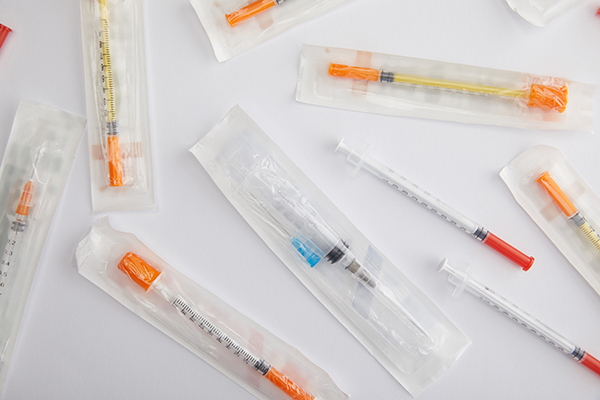Drugs can be administered in a lot of different ways like smoking, snorting, swallowing, or injecting. Injection, or shooting up, is common because it causes the drugs to reach the brain almost instantaneously and makes them much stronger. Most drug users will likely start out snorting or smoking the drugs, but after a time, tolerance will build up and you will look for a way to get the same strong high again.
Most Commonly Drugs Used by Injection
Unfortunately, while the high might be “better,” it also makes it more risky, addicting, and life is threatening to the user. Most drugs that are abused can be taken in more than one way. The drugs most commonly used by injection include:
- Cocaine and crack
- Heroin
- Fentanyl
- Ketamine
- Methamphetamine
- Morphine
- Opioid painkillers
- Prescription stimulants
- PCP

Mixing Drugs While Injecting Them
Many users will even go so far as to mix the drugs together when injecting them. For example, heroin and cocaine are often abused together. This is called a speedball. Injecting drugs either by themselves or in a combination is extremely dangerous and can also be fatal. Let’s look at some of the dangers of injecting drugs. 1. Track Marks – Those who inject drugs are very likely to develop track marks. Track marks occur when the user continuously repeats drugs into the same injection site, essentially scarring their vein. Track marks also occur because of old needles. If you keep using the same needle, it will become dull and blunt, putting extra pressure on your vein. They can also happen due to impure drugs. Most drugs are contaminated in some way with additives. Track marks will make the skin will become discolored. The most commonplace to see track marks is the non-dominant arm. For example, if you are right-handed, the marks will likely be on the left arm. Other common injection locations include the veins on the feet, the hands, the groin, and the joint of the knee. 2. Skin Popping – Skin popping is another name for subcutaneous, under the skin, or intradermal, between the skin and the fat injection. It causes the drug to absorb slowly into the bloodstream and stay in the system longer. When drugs are repeatedly used this way, the damage will occur to the skin where it is injected. 3. Vein Infections and Injuries – Drugs bought and sold on the street are filled with contaminants that can expose the user to infections. Skin infections or abscesses create pockets of pus that collect under the skin. Non-sterile needles and poor hygiene can also cause infections. 4. HIV and Hepatitis C – When you come into contact with infected blood due to sharing needles or other injection equipment, you put yourself at risk of contracting HIV or Hepatitis C. Hepatitis C is a liver infection and is the most common blood-borne virus out there. HIV can live on a needle for up to 42 days. 5. Heart Problems – Endocarditis is a condition that causes inflammation to the interior lining of the heart and is possible when injecting drugs for a long period of contact. When it isn’t treated, it can cause damaged or destroyed heart valves and can have life-threatening consequences. It happens when bacteria from the needle or dirty drugs reach the heart, spreading the infection.
Start Addiction Help at Evoke Wellness at Miramar
Many treatment options are available to you to stop injecting drugs. First, you will need help. Detox is often the first step on the road to recovery because it flushes the harmful drugs from your system. After that, they will need additional treatment to get to the root of your addiction problem. If you are ready to turn your life around, now is the time to do it. You do not need to continue putting your life at risk. Talk to one of our addiction specialists and they will help you get on the path to a happier and healthier lifestyle free from addiction. All calls are free and confidential and we are available around the clock.


